From Cool Homes to Autos, an Ahmedabad NGO Is Making It Easier for Slum Dwellers to Bear the Heat
Working on grassroot change for two decades, the Mahila Housing Trust has gained a reputation for providing sustainable heat-resilient solutions for slums.
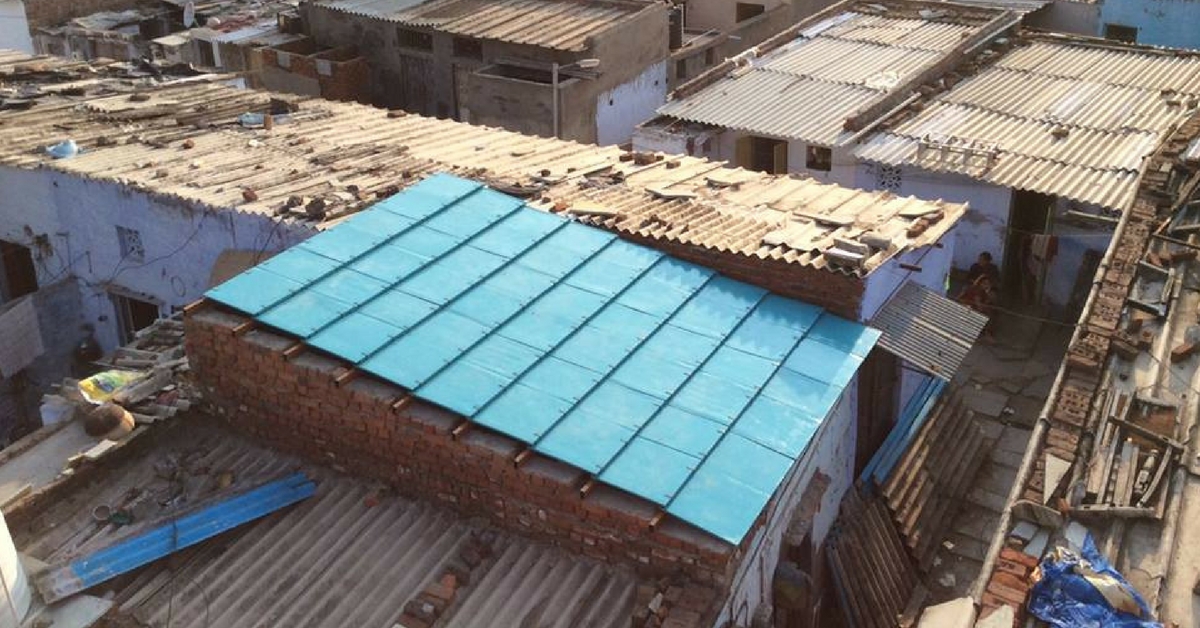
Summer in India can move even resilient urban dwellers to seek respite in air-conditioned spaces. After all, it is a long-running joke that malls and multiplexes see higher footfalls than ever on summer afternoons. But for a vast majority of the country’s population who live in slums and cramped homes, sustainable cooling solutions are hard to come by.
In Ahmedabad, a women-led NGO has taken up the initiative of installing heat-resilient roofs atop slum homes.
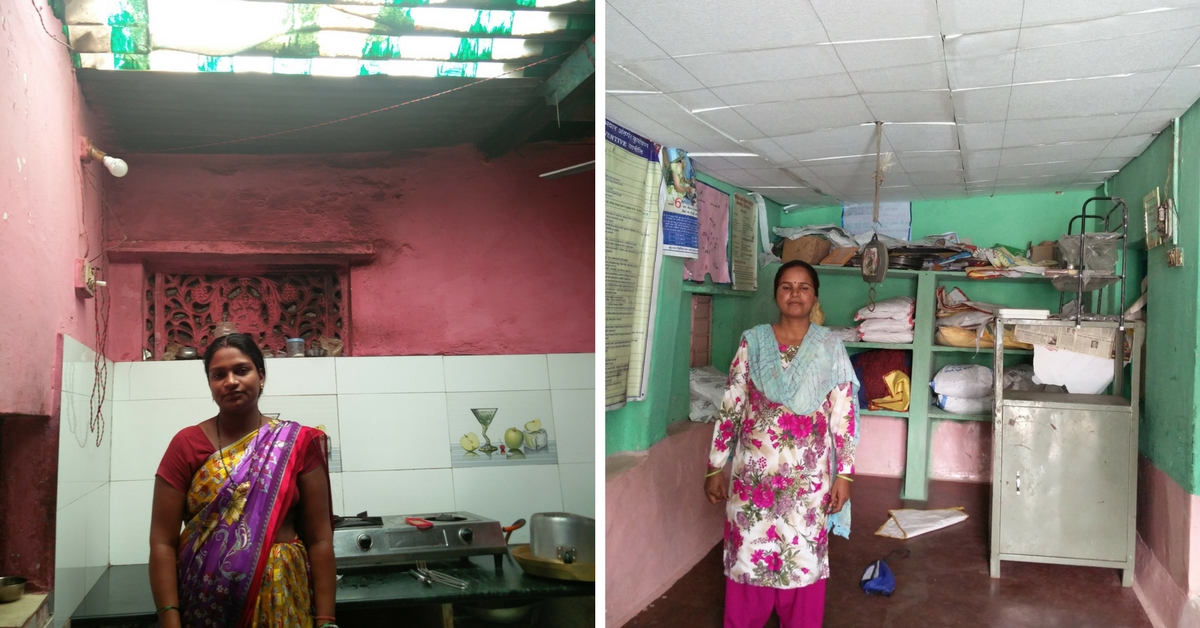
Behind the initiative is the Mahila Housing Trust, an NGO promoted by SEWA, which works to empower underprivileged communities in many states of India. With emphasis on the emancipation of women, the NGO leads a variety of projects ranging from vocational training to land rights in rural areas.
The poor living condition has always been a concern for the NGO, says Bhavna Maheriya, programme manager of the NGO. A vast majority of slum dwellers work outdoors and often don’t have proper cooling systems at home either. According to a focus group studies done by MHT, “the productivity of women staying home-based workers, who mostly work in afternoons could also go down sometimes up to 50% in summers resulting in reduced household incomes and increased financial burden.”
You might also like: These Slum Kids Had Never Been to the Movies. So the Movies Came to Them
The MHT team came across Modroofs in 2012, when a mutual associate introduced them to Hasit Ganatra, founder of sustainable roofing firm Rematerials. Modroofs is a signature product of Rematerials, water-proof modular roofs made of paper waste and coconut husk that reduces the temperature of homes and provides an eco-friendly alternative to RCC roofs. They are also easily dismantled and reinstalled easily.
The MHT team installed their first modular roof as a pilot project, for testing and feedback, in 2013.
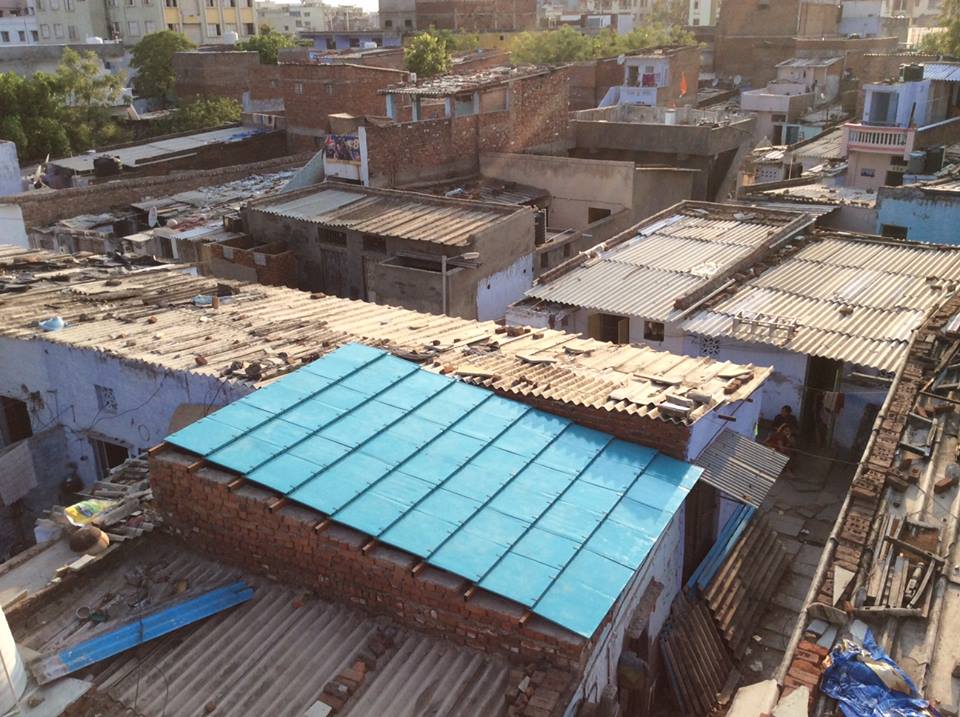
Implementing the project was no small matter for MHT, whose members raised the initial funding among themselves. Bhavna says, “We were also concerned that the roof would take 2-3 days to be installed, and the people living there would be prepared for this.”
“We launched the pilot to see if there would be a demand for such products, and how efficiently it worked,” she adds. “We made provisions for temperature supervision in the home where we had installed the roofs. We checked the temperature at regular intervals, about 5-6 times per day.”
As the data gathered showed that temperatures indeed dropped, and by a substantial 7-8 degree Celsius, the MHT team offered feedback to refine the product and suit their requirements. With increasing demand, the NGO has now installed over 250 such roofs.
The NGO has long been invested in offering innovative and sustainable cooling solutions for low-income communities.
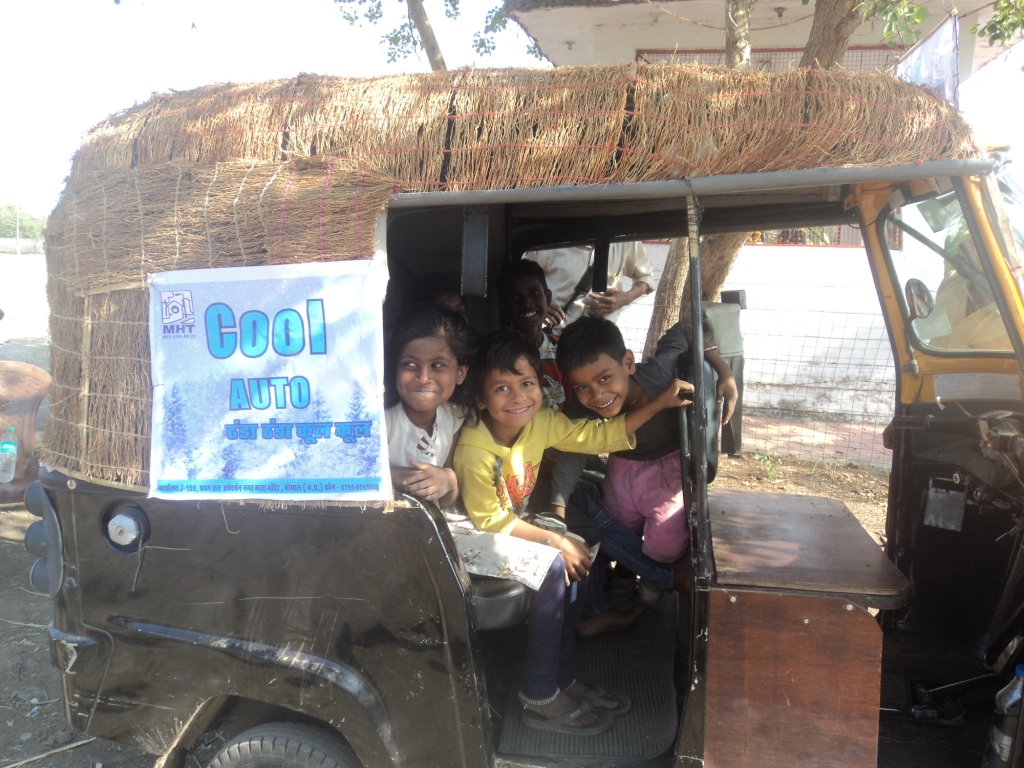
As Bhavna mentions, the modular roof happens to be one of their most popular and talked-about projects. MHT also helps slum dwellers install cooling thermocol ceilings, solar reflective paints on roofs and foliage-laden green roofs.
Besides Modroofs, the NGO also offers Air Lite ventilators, made from fibre sheet to improve air circulation in homes. These ventilation systems also lower temperature, filter natural light better thus reducing electricity consumption and helps with indoor pollution.
Another heat-resilient solution that has found takers is the Cool Auto rickshaw. A layer of paddy husk, a traditional cooler used in many parts of India, is installed on the roof and outer walls of auto rickshaws. Using bamboo or plastic pipes, a frame is created overhead for the cooler’s placement, which brings down the temperature by 2-6 degree Celsius.
MHT is now gearing up to implement its cooling roof solutions in Delhi, for which it won the prestigious Delhi Challenge contest in 2016.
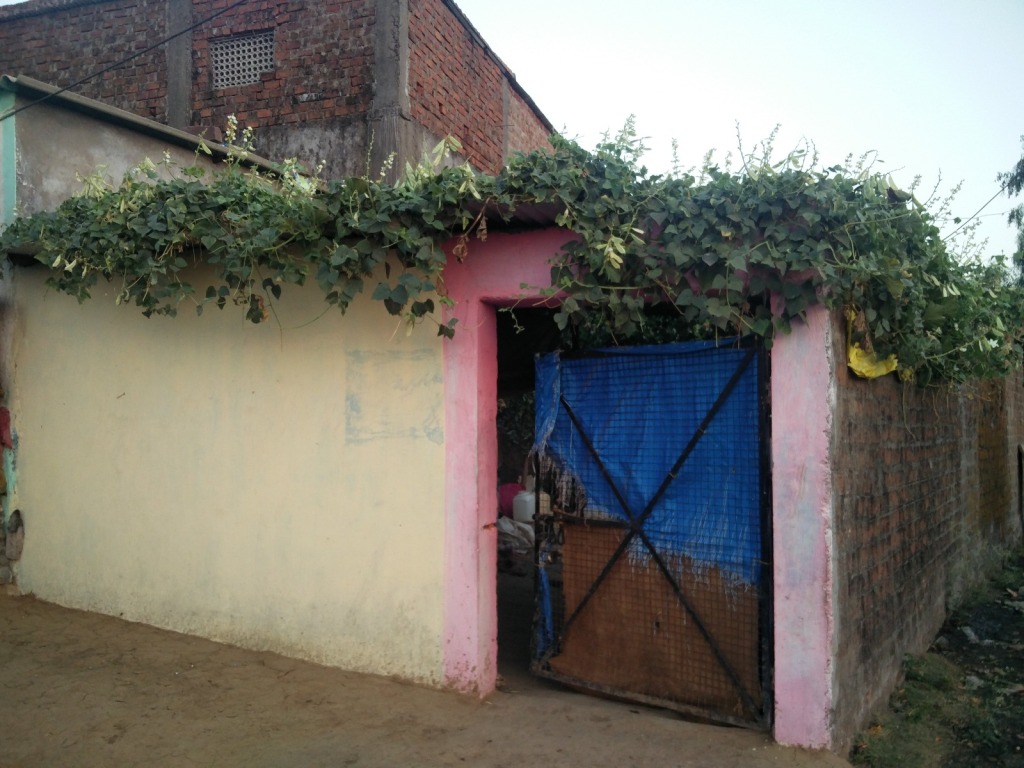
The Delhi Challenge was an urban innovation contest hosted by University of Chicago in association with the government. The MHT team will work in tandem with the University of Chicago Urban Labs, the Energy Policy Institute at the University of Chicago’s India team (EPIC-India), and the Delhi Dialogue and Development Commission to showcase a model for cooling roof solutions in slums.
“We have selected three slums and in the following months, we will install cooling roofs in about 200 slum homes. We are expecting to start in the next couple of months,” informs Bhavna.
Funding and resources is a perennial challenge for the NGO. Bhavna cites the high cost of modular roofs as an example, saying, “We need funding to implement our technologies and spread the word.”
You might also like: She Grew up in Mumbai’s Slums. Today, Aarti Has Educated & Empowered Hundreds of Girls Like Her
In spite of challenges, MHT has worked for about two decades in bringing about grassroot change around India. Its climate-resilience projects have even spread to Nepal and Bangladesh, informs Bhavna, and the team is excited for the project in Delhi with the hope that it will spread around the country.
Simple and sustainable, these cooling initiatives can not only bring comfort in the lives of underprivileged communities in the midst of unforgiving summers, but also makes a positive impact on the environment.
Head to Facebook for more updates on MHT’s activities. To contact Bhavna, click here.
Like this story? Or have something to share? Write to us: [email protected], or connect with us on Facebook and Twitter.
NEW: Click here to get positive news on WhatsApp!<
This story made me
-
97
-
121
-
89
-
167
Tell Us More
If you found our story insightful, informative, or even just enjoyable, we invite you to consider making a voluntary payment to support the work we do at The Better India. Your contribution helps us continue producing quality content that educates, inspires, and drives positive change.
Choose one of the payment options below for your contribution-
By paying for the stories you value, you directly contribute to sustaining our efforts focused on making a difference in the world. Together, let's ensure that impactful stories continue to be told and shared, enriching lives and communities alike.
Thank you for your support. Here are some frequently asked questions you might find helpful to know why you are contributing?



















